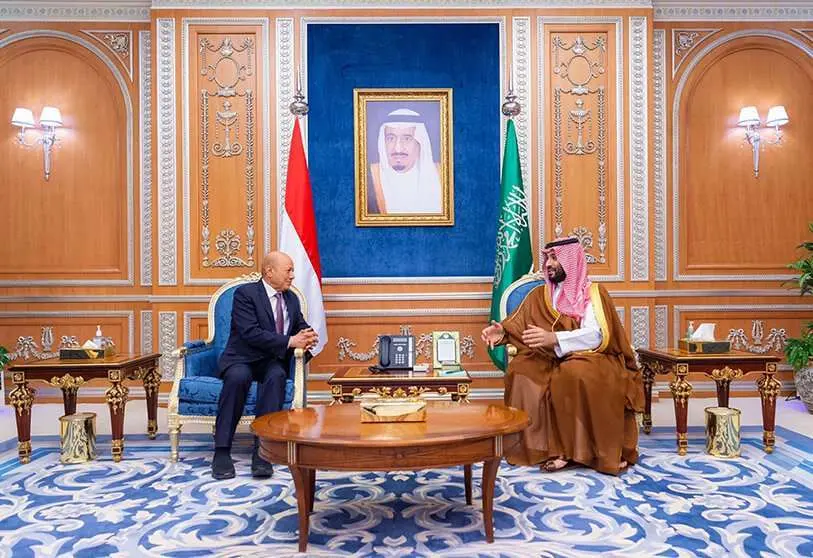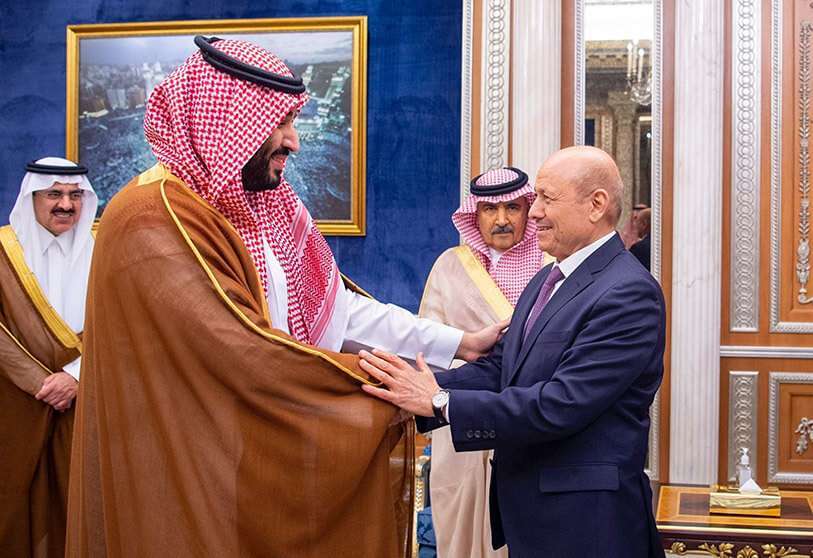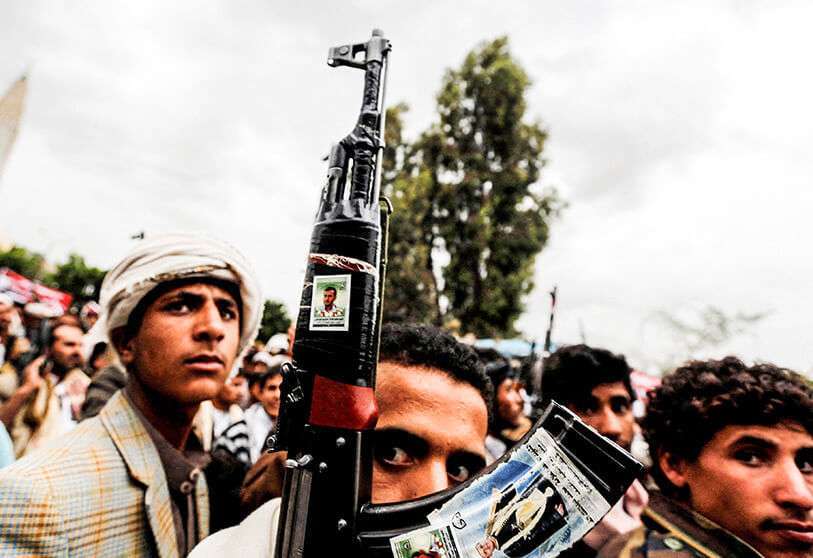Yemen's president-in-exile accepts Saudi proposal and cedes power to a Governing Council

Yemen's exiled President Abed Rabbo Mansur Hadi announced on Thursday that he will hand over the presidency of the embattled country. In his place, a governing council of eight politicians and military officers, headed by Rashad Muhammad Al-Alim, former interior minister during the government of Abdullah Saleh (1978-1990), will take over.
Rashad Al-Alim is a veteran and established political figure in Yemen with strong ties to Saudi Arabia. He was previously an advisor to Hadi and will serve in the Governing Council as a 'primus inter pares'. According to the AP, Al-Alim also has strong ties to the Islah political party, Yemen's affiliate of the Muslim Brotherhood.
Hadi, who made his decision public on Yemen's government television channel, also announced the dismissal of his deputy prime minister, Ali Mohsen Al-Ahmar, who will see his duties handed over to the Governing Council.
The decision was applauded by Saudi Arabia and the United Arab Emirates, the main supporters of the Yemeni government. Both countries then announced a donation of 3 billion dollars in aid to the Yemeni government. Saudi television published images of the meeting between Crown Prince Mohammed bin Salman and Hadi.
#فيديو_واس: سمو #ولي_العهد يستقبل رئيس مجلس القيادة الرئاسي اليمني وأعضاء المجلس.#واس pic.twitter.com/0HSNSJnuoD
— واس الأخبار الملكية (@spagov) April 7, 2022
In the statement subsequently published by the presidency, it was clarified that the Governing Council will have supervisory power over sovereign tasks related to the defence of the Republic and those of directing and executing the State's foreign policy. This new body thus becomes the interlocutor with the Houthis at this time of truce during the month of Ramadan.
The communiqué details the list of members of the Governing Council:
Rashad Muhammad Al-Alimi
Sultan Ali Al-Arada
Tariq Muhammad Salih
Abd al-Rahman Abu Zara'a.
Abdullah Al-Alimi Bawazeer.
Othman Hussein Megali.
Aidarous Qassem Al-Zubaidi.
Faraj Salmin Al-Bahsani.

The analyst specialising in Yemen, Peter Salisbury, has commented on the social network Twitter, that this change could mean an important evolution in the negotiations of the conflict. Yemen's civil war has been at a stalemate since 2015, when the Houthis seized the capital Sana'a and much of the country, prompting Hadi, Salah's de facto successor, to flee to Saudi Arabia. An Arab coalition led by the United Arab Emirates and Saudi Arabia has been involved in this proxy war, with Iran backing the Houthis. The long years of war have plunged the country into a severe social and humanitarian crisis, harming for the civilian population, according to UN reports.
According to Peter Salisbury, the change of power is key, as a president in exile for the past seven years hands over the mandate to a group of politicians and military officers closer to the realities of the conflict.
On a more serious note: the announcement that Hadi is ceding his powers to a presidential council made up of key political and military figures with direct roles on the ground is A Big Deal. Most consequential shift in the inner workings of the anti-Huthi bloc since war began.
— Peter Salisbury (@peterjsalisbury) April 7, 2022
The Ramadan truce is seen by specialists as one with sufficient force to push forward negotiations with the Huthis. A peace summit was convened in Riyadh by the Arab coalition, but the Houthis refuse to attend a meeting on "enemy soil", so negotiations have not yet made significant progress.
According to UN reports, there has been a decrease in violence in Yemen over the past two weeks, and this trend is expected to continue throughout the holy month of Ramadan. The Houthis have yet to comment on this change in power.

During the first three months of 2022, the Arab coalition suffered heavy blows from the Houthis, who managed to hit some logistical targets in Saudi Arabia and the United Arab Emirates. An Aramco refinery in Jeddah was hit by a missile in Saudi Arabia just before the Formula 1 Grand Prix. Abu Dhabi International Airport also suffered a Houthi drone strike in February that killed 3 workers. The Houthis have very strong backing from Iran, which is why they have been able to achieve such actions against Gulf countries.
On the other hand, the Arab coalition has reproached the US for its loss of interest in the region and the lack of support from the Biden administration. Nevertheless, after the attacks, Joe Biden gave the green light to the sale of Patriot interceptor missiles to Saudi Arabia, and sent an anti-missile frigate to the port of Abu Dhabi.








